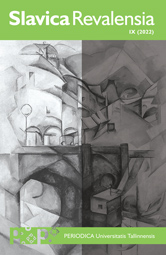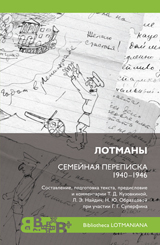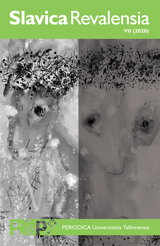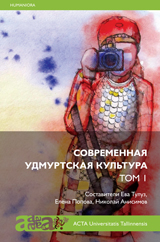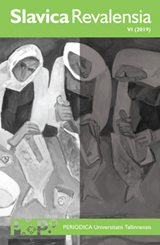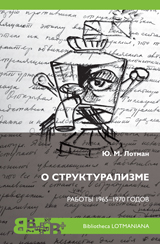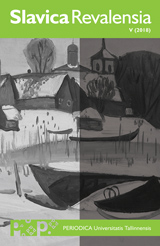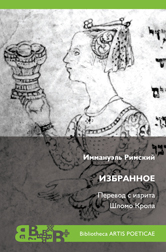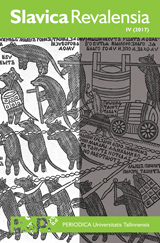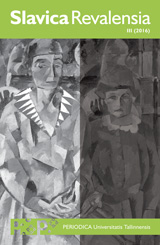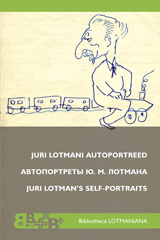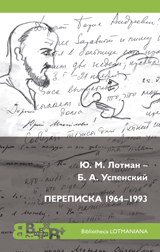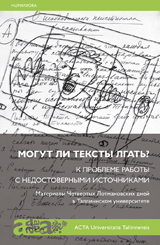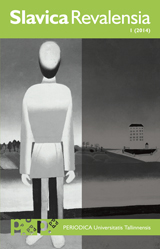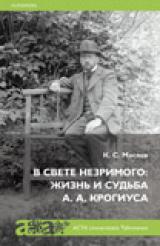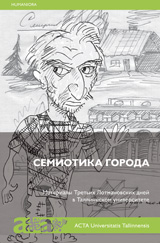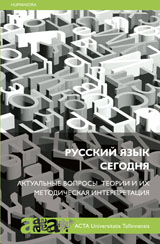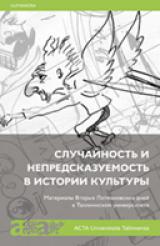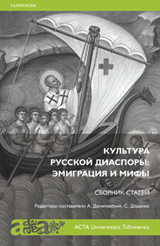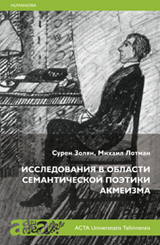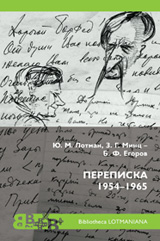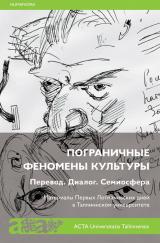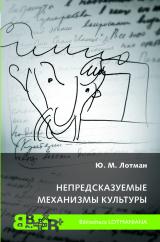In Russian
|
ISSN 2346-5824 (print issue) |
Slavica Revalensia IX (2022) (in Russian) Edited by Grigori Utgof Tallinn University Press has recently published the ninths volume of a scholarly journal Slavica Revalensia, edited by Associate Professor Grigori Utgof. In the journal’s first section “Issledovaniia i materialy” (“Articles and Notes”), a reader will find thirteen articles on 19 th to 21 st -century Russian literature (e.g., on Ivan Krylov, Alexander Pushkin, Mikhail Bulgakov, Anna Akhmatova, Sergei Gandlevsky, etc.) and also on Russian and East European history (including the history of Soviet terror). The same section includes a prefaced publication of Juri Lotman’s brief note on Sergei Eisenstein and Vladimir Mayakovky, which he wrote for his student in the Spring of 1970, and softly encouraged to publish under her name in Materialy XXV nauchnoi konferentsii molodykh filologov (Proceedings of 25 th Junior Scholar Conference). The “Kritika” (“Criticism”) section surveys a recently published book by Galina Babak and Alexander Dmitriev on the formal method’s reception in Ukraine (The Atlantis of Soviet National Modernism: The Formal Method in Ukraine). The volume ends with an obituary for Magnus Ljunggren (1942—2022), a distinguished expert in Andrey Bely’s art and an unequivocal critic of Russia’s regime, written by Ben Hellman (Helsinki) and Per-Arne Bodin (Stockholm). |
|
ISBN 978-9985-58-919-9 |
Лотманы. Семейная переписка 1940-1946 годов Edited by Tatjana Kuzovkina, Larissa Naiditch, Natalja Obraztsova, Gabriel Superfin 18 € This book presents the correspondence of the Lotman family and their inner circle during World War II, together with comments. 378 preserved letters have been consolidated in the publication; 351 of the letters published for the first time. The source material originates mainly from the family archives of the relatives, and from the archives of Juri Lotman and Zara Mints (in Tartu and in Tallinn). The first letter published in the collection was sent by Juri Lotman on October 23, 1940 from the station of Bologoje, where the train taking him to the military service stopped; the last letter in the book has been sent from Inna Lotman to the Gnessin family, informing that Juri Mikhailovich has arrived home in the beginning of December 1946. |
|
ISSN 2346-5824 |
Slavica Revalensia VII (2020) (in Russian) Editor: Grigori Utgof 10 € The seventh volume of a Tallinn University journal in russkaia filologiia (Slavic Studies) Slavica Revalensia has just been published. In the journal’s first section “Issledovaniia i materialy” (“Articles and Notes”), the readers shall find eight articles (in Russian and English) both in the close reading genre (e. g. the article by Alexandra Pakhomova on Mikhail Kuzmin and Alexander Dolinin’s article on Vladimir Nabokov’s Glory) and also in the field of literary history. In particular, there are prefaced and extensively annotated first publications of two letters of Prince Pyotr Vyazemsky to Pyotr Bartnev (publication by Lev Sobolev), Boris Eichenbaum’s letters to Iurii Nikol’ski (publication by Marina Salman), and three letters of Ivar Ivask to Boris Pasternak (publication by Aija Sakova). There are also two texts by Andrei Kaisarov, one of which has never been published in full before, and the other, Vospominaniia o Schlözere (“Memoir on Schlözer”), has been previously mistakenly attributed to Alexander Turgenev (publication by Marina Koreneva and Ekaterina Larionova). Pushkin Studies are represented by Michail Bezrodnyj’s second installment in his series “Iz kommentariia k Pikovoi dame: 5–6” (“From Annotations to The Queen of Spades: 5–6”); there is also a yet another installment in Roman Timenchik’s monumental series of annotations to Anna Akhmatova’s Notebooks (see also: Slavica Revalensia, vols. 5 and 6). In the “In memoriam” section of the journal, there are obituaries to the following experts in Russian literary studies: a senior research fellow of the Institute of World Literature of the Russian Academy of Sciences Oleg Korostelev (1959—2020), prof. James Bailey (1929—2020) of the University of Wisconsin-Madison, prof. Elena Dushechkina (1941—2020) of the St. Petersburg State University, and prof. Nikolai Bogomolov (1950—2020) of the Moscow State University. The publication has been supported by the TLÜ development foundation (TF1018) and the TÜHI research fund. |
|
ISBN 978-9985-58-880-2 (part 1) |
Современная удмуртская культура Editors: Eva Toulouze, Nikolai Anissimov, Jelena Popova 12,50 € The collection of articles “The Contemporary Udmurt Culture” observes the current situation of the Udmurt traditional culture and shows how the Udmurts have been able to maintain their identity despite globalisation and in part also on the basis of it, and pass on a rich and distinctive culture. In contemporary Udmurt culture, mythological worldview exists side by side with new, official holidays and redefined traditions. Folklore and festival movement based on the Udmurt village culture merits special attention. Material culture, incl. food, is seen as an economic resource one of the expressions of which are the food festivals. The contemporary Udmurt village participates actively in tourism. Current innovations are related to life strategies, everyday life, way of communication and private sphere. Changes in the Udmurt culture occur at such a pace that the researchers barely get to record and give meaning to them. |
|
ISSN 2346-5824
|
Slavica Revalensia VI (2019) (in Russian) 10 € In the sixth issue of Slavica Revalensia, 11 materials await the reader. These include, for example, prince Pavel Vjazemski’s letter to Pjotr Bartenev, yet unpublished (Lev Sobolev’s publication), another part of the article series by Roman Timentšik “On the list of names in Anna Akhmatova’s “Notebooks” and Henryk Baran’s review of Georgi Levinton’s book «Статьи о поэзии русского авангарда» (“Articles on the poetry of the Russian avant-garde”). Two 120th anniversaries have also been mentioned: the issue begins with Aleksandr Dolinin’s article on the novel “Invitation to a Beheading” by Vladimir Nabokov (1899—1977) and on Soviet literature, which is followed by Jevgeni Jablokov’s article on the subject of visual theme in the prose of Andrei Platonov (1899—1951). Slavica Revalensia is an international pre-reviewed journal founded at the Tallinn University in 2014, dedicated to Slavic studies. |
|
978-9985-58-862-8 |
О структурализме: Работы 1965–1970 годов 16,90 € "О структурализме: Работы 1965–1970 годов" ("On Structuralism: Writings from 1965-1970") opens the series of Yuri Lotman's less known writings. The book contains texts about structuralism applied on literary theory, the problems of structuralist poetics and the structural-semiotic analysis of culture. The texts in the book were not published during the author's life or were published in abbreviated versions. Also, the book contains articles originally written in Russian, which have later been published only as translations into other languages. The works of Lotman have been divided into three categories according to their chronology, genre and topic. The first part consists of articles written in the 1960s which discuss comprehensively and polemically the purposes of structuralism, the particularities of structural-semiotic method and its historic origins. The materials presented in the second part of the book are connected with Lotman's collaboration with encyclopedic publications in the 1960s and 1970s. The third part contains the materials about the selected papers of the founder of Czech structuralism, Jan Mukařovský, originally written in Russian, on which Lotman worked at the end of the 1960s but which remained unpublished. The book comes with substantial and detailed academic commentaries and articles by Igor Pilshchikov, Nikolai Posselyagin and Mikhail Trunin. |
|
ISSN 2346-5824
|
Slavica Revalensia V (2018) (in Russian) 10 € The fifth issue of Slavica Revalensia brings nine texts to its readers. These include Olga Makarevich’s study of Nikolai Leskov’s previously unknown review of the Russian translation of John Bunyan’s book “The Pilgrim’s Progress”, Vladimir Nabokov’s previously unpublished article “О поэзии” (On Poetry) (a publication of Alexander Dolinin and Grigori Utgof) and the 33rd part of Roman Timenchik’s article cycle “From an Index to Anna Akhmatova’s “Notebooks” ”. The 190th anniversary of Lev Tolstoi has also been noted: the issue opens with Yulia Krasnosel’skaia’s article about the protection of aide-de-champs in the life and creation of Lev Tolstoi and closes with Joanna Piotrowska’s publication “Leo Tolstoi in Poland: A Very Short Bibliography (1990–2008)”. The articles in Slavica Revalensia are in Russian, with article summaries in English and Estonian. Slavica Revalensia is an international pre-reviewed journal founded at the Tallinn University in 2014, dedicated to Slavic studies. |
|
ISBN 978-9985-58-854-3 |
Избранное 18,40 € The book presents – for the first time in Russian – the creative works of famous Medieval Jewish poet Immanuel the Roman who lived in Italy at the end of the 13th century and at the beginning of the 14th century. His creation organically mixes the traditions of Hebrew, Ibero-Arabian and Italian culture and poetry. A contemporary of Dante, Immanuel the Roman laid the groundwork for the Hebrew sonnet which was also the first non-Italian sonnet. The author’s works include Medieval and Renaissance motifs. At the time, his erotic sonnets were seen as so frivolous that Rabi Joseph Karo wrote in his codex “Shulchan aruch”: “It is forbidden to read poems of frivolous content and erotic use of words, such as in the book of Immanuel, on Saturdays and during the week.” Regardless of that – or thanks to that – Immanuel’s creation became very popular, his works were in high demand and people bought them at exorbitant prices. According to the compiler and translator of the book, translating Immanuel’s texts was rather difficult as their form is very complex. “Nevertheless, it was a funny and fascinating job. Immanuel amazed me with his virtuosity and with his ability to play in different style registers. In his poems, there is a tension between the joy of life and the tragic aspects of life, which is also characteristic of other medieval works of literature and the reason why we love the era.” The main part of the book is made up of the creative heritage of Immanuel the Roman in Hebrew and Italian (the original presented in parallel to the translation), accompanied by thorough comments from the translator who has also written the foreword “Poetry of Immanuel the Roman: A Crossing Point of the West and the East”. The publication opens with an essay by Mikhail Lotman, “Sonnet: a Sketch of History and Phenomenology”, and closes with an afterword by Semyon Yakerson, “First Printing of Mahbarot. Bibliological Essay”, and an appendix by Dvora Bregman, “Chapters from the Book: “Golden Journey: Hebrew Sonnet In the Era of Renaissance and Baroque” ”, translated by Alexandra Polyan. The creative works of Immanuel the Roman constitute a bright monument to an era and are more than worth reading also today. |
|
ISSN 2346-5824 |
Slavica Revalensia IV (in Russian) 6 € In the third issue of Slavica Revalensia, ten new texts not yet published are waiting to be discovered by the reader. These include, for example, Elena Kardash’s study on the most enigmatic detail of Alexander Pushkin’s story “The Coffin-Maker” (1831), an article by Alexander Grishin on the unrealised silent film plot by Andrey Platonov that spoke about a black Red Army soldier, and a study by Alexander Feduta comparing two versions of the same anecdote – a literary anecdote of a visit of high-level Soviet official to Poland and the alternative version of the same anecdote that the author learned about during a conversation with Adam Michnik, a Polish intellectual and a former political prisoner. Slavica Revalensia is an international peer-reviewed journal, founded in Tallinn University in 2014, and dedicated to Slavonic studies. The journal has three sections: “Studies and materials”, “Criticism” and “Bibliography”. The articles in Slavica Revalensia are in the Russian language, abstracts of articles are in Estonian and in English. |
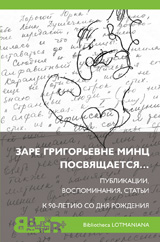
ISBN 978-9985-58-831-4 |
Зарe Григорьевнe Минц посвящается… Публикации, воспоминания, статьи. K 90-летию цо дня рождения“ Out of stock This collection is a tribute to Zara Mints (1927–1990), professor of the University of Tartu and an outstanding researcher of the Silver Age of Russian culture. The collection consists of four parts: materials from the Yuri Lotman and Zara Mints archive in Estonian Semiotics Repository Foundation, Zara Mints’ letters from other archives and private collections, memories and articles inspired by the works of Zara Mints. Texts provide an opportunity for the reader of the collection to get an idea of the charming personality of Zara Mints, her significant role in the development of the special atmosphere in Tartu and her influence on the students of many generations. |
|
|
Slavica Revalensia III (2016) (in Russian) 4.90 € Slavica Revalensia is an international peer-reviewed journal, founded in Tallinn University in 2014, and dedicated to Slavonic studies. In the third issue of Slavica Revalensia, 12 new texts not yet published are waiting to be discovered by the reader. These include, for example, Fjodor Dvinjatin's study on the structure of Alexander Pushkin's poem "От меня вечор Леила..." (1835–1836), Julia Krasnosselskaja's article on the idea of rent in Leo Tolstoy's social initiatives in 1857, Marina Salman's study on the earlier period of the life of Julian Oksman, the connoisseur of Russian 19th century literature (1895–1970), and Jevgenia Khazdan's article on how the staff of Russian Institute of Art History reacted to the recent attempt to "optimize" their place of work. Abstracts of the articles are in Estonian and English.
|
|
ISBN 978-9985-58-8093 |
Juri Lotmani autoportreed. Автопортреты Ю. М. Лотмана. Juri Lotman’s 16,90 € A trilingual and colourful book of self-portraits is a valuable addition to the legacy of this great scientist. Yuri Lotman was artistically talented and mastered a brilliant sketching technique; he knew how to convey the essence of things, animals, people with just a few lines. Often he drew himself, and this part of his artistic heritage is especially interesting culturally and in terms of his biography as a scientist: self-portrait is the expression of inner and outer at the same time, and reveals how the author views himself, what are the most intrinsic features of his character and behaviour. Yuri Lotman drew self-portraits often at random, on the edges of his research work, bibliographical sheets, calendar sheets etc. His self-portraits have been drawn in a humorous light, often using self-irony and expressing the author’s sense of humour. This makes the images especially charming. Illustrations differ by composition: there are quick portraits on the edges of texts, some have been outlined into the text, often accompanied by verbal comments, there are image series, stories within the images. Each drawing is accompanied by a short comment that contains necessary information for understanding the image: size, time of creation, location of the archival document, explanations on the content and the circumstances of its creation, if necessary. Comments have been written by Tatyana Kuzovkina. She has also written an epilogue for the drawings in cooperation with S. M. Daniel. As an important addition to Yuri Lotman’s legacy, primarily his biography, the book is trilingual: all comments and the epilogue are in Estonian, Russian and English. |
|
ISBN 978-9985-58-810-9 |
Ю. М. Лотман – Б. А. Успенский. Переписка 1964–1993 12,80 € Correspondence of professors Yuri Lotman (1922–1993) and Boris Uspensky (b. 1937) includes more than 420 letters from the years 1964–1993. In the letters of two scientists, university and family life at that time is reflected, and the birth and development of the scientific ideas of both authors who stood at the source of Tartu-Moscow (or Moscow-Tartu) semiotic school is observed. |
|
ISBN 978-9985-58-792-8 |
МОГУТ ЛИ ТЕКСТЫ ЛГАТЬ? К проблеме работы с недостоверными источниками 13 € “CAN TEXTS LIE? On the Problematics of Working with Unreliable Sources” is a collection that includes a variety of material from the 4th Yuri Lotman Semiotic Conference at the University of Tallinn in 2012. This conference concentrated on problematics in the humanities relating to the criticism and analysis of the sources of scientific research. Developing the ideas of the Tartu-Moscow School of Semiotics, the articles expand upon the possibilities of using counterfeit or deliberately misinforming sources in scientific research; cases, where it is difficult to understand, which text is the most “original” or authoritative; the problems of textological, philological, historical and cultural research. The book is divided into four sub-parts. The first part includes essays studying the linguistic and cultural aspects of the terms “right/wrong” on a theoretical level. In addition, the conference thesis from Juri Lotman’s personal archive “On the Inevitability of Untrue Utterances” is published for the first time and promoted in an accompanying commentary by Tatyana Kuzovkina. The articles in the second part discuss the source treatment at the Tartu-Moscow School and the culturo-historical problems that relate to it. The articles in the third part analyse cases where unreliability is a part of the author’s strategy, for example, artistic manipulations with the (non) authenticity of sources, fictional biographies and histories. The fourth part concentrates on the phenomenon of lying in different cultural and political discourses. |
|
Paperback |
Slavica Revalensia I (2014) (in Russian) 10 € The Russian science magazine "Slavica Revalensia", founded in 2014 at the University of Tallinn, focuses on Slavic studies. The magazine's editorial panel is comprised of 18 experts, including Aleksey Alekseyevich Gippius, the correspondent member of the Russian Science Academy; Professor Georgiy Akhilovich Levinton from the Faculty of Anthropology at the European University in St. Petersburg; Tatyana Vladimirovna Tsivyan, the Director of the Department of Russian Culture from the Institute of Comparative Culture at the University of Moscow; Professor Michael Wachtel, from the Faculty of Comparative Literature Studies and the Faculty of Slavonic Languages and Cultures at Princeton University, among others. The magazine is peer-reviewed and open to collaborations. It is comprised of three sections: "Research and materials", "Critics" and "Bibliography". The first issue of "Slavica Revalensia" contains 11 previously unpublished texts. Among them, for example, is an article by Pavel Uspensky; “Thoughts on Imitation of Horace” by Konstantin Batyushkov; “Perhaps the Poem Is Not That Bad?” an unpublished chapter from the doctoral thesis of Romen Gafanovich Nazirov (1934-2004); "Traditions of Pushkin and Gogol in Russian Prose: a Comparative History of Fabulae", as well as the article by Aurika Meimre and Antonia Nael on the displacement of the statue of Peter I in Tallinn in 1922. The new magazine is published in collaboration with the Institute of Slavonic Languages and Cultures at the University of Tallinn and the Tallinn University Press; the editor of the first issue is Grigori Utgof. |
|
ISBN 9789-985-58-78-29 |
В свете незримого: жизнь и судьба А. А. Крогиуса 16,80 € This book tells the story of the life and scientific pursuits of A.A. Krogius (1871-1933), a graduate of the University of Tartu. Krogius was an active participant in psychology congresses and is considered to be the founder of the science of psychology of the blind in Russia. He was a professor of Psychology at the Saratov State University from 1919 to 1932 but his life was over-shadowed by the dramatic historical events of the early 20th century. The book includes unique documents made available from both public and private archives in Estonia, Russia and the U.S. In the Light of the Invisible: the Life and Destiny of A. A. Krogius will be of particular interest for psychologists, historians of science and students but will also appeal to anybody who is interested in history and science. |
|
ISBN 9789-985-58-779-9 |
Семиотика города: Материалы Третьих Лотмановских дней в Таллиннском университете (3–5 июня 2011 г.) Out of stock The book consists of four sections. The articles in the first section discuss how the “text of Tallinn” and the “text of Vilnius” function in modern and contemporary Baltic and Eastern Slavic cultures. The second section is devoted to the problems of urbanism as they are reflected in the Russian literature of the late nineteenth and early twentieth centuries. The third section includes the papers that describe the visual and mental perception of the city space by the artists, travellers, and local inhabitants themselves. The fourth and the last section contains the controversy between the participants in the discussion of the semiotics of St. Petersburg in the interpretation of Juri Lotman and Boris Uspensky. |
|
ISBN 9789-985-58-772-0 |
Русский язык сегодня: Aктуальные вопросы теории и их методическая интерпретация 9,20 € The book disserts the aspects of modern linguistics, which have not lost their topicality over time. By finding additional data from the language system, the current linguistic theory focuses on the functioning of the language instruments, and the semantics and pragmatics – cognitive processes – of using them. Thus it becomes possible to interpret the content and meaning of language units. The named aspects form the basis of language studies, developing the skills of understanding fluent speech and building it. The first part of the book is dedicated to the linguistic description of the Russian language; the second part disserts the problems of teaching Russian. The concepts of Russian culture, which are attainable through linguistic research and allow teaching the understanding of Russian culture, reflect in the aforementioned aspects. This is especially relevant in the light of current social situation: A 21st century globalised multicultural community, where the Russian language and teaching it have a clear position. The book is comprised of articles by Estonian, Russian, Finnish, Czech, Polish and Bulgarian researchers. |
|
ISBN 978-9985-58-759-1 |
Случайность и непредсказуемость в истории культуры. Материалы Вторых Лотмановских дней в Таллиннском университете (4–6 июня 2010 г.) 13,90 € This collection presents the materials of the conference, which was devoted to the concepts of “chance”, “unpredictability”, “probability”, and “coincidence”. The book consists of three sections. The first section includes the papers that discuss cultural-historical problems in terms of such terminological opposition as “necessity vs. chance”, “predictable vs. unpredictable”, and “deterministic vs. stochastic”. The second section is devoted to the problems of indeterminism in Russian cultural history as they are reflected in Russian poetic, novelistic, cinematic and political discourses and narratives. The articles in the third section discuss cultural and political aspects of contemporary history of Central and Eastern Europe, and, in particular, J. Lotman’s communication with the Estonian academic and social milieu. |
|
ISBN 978-9985-58-750-8 Paperback |
Культура русской диаспоры: эмиграция и мифы 11 € To a great extent, the mythification of Russian exile culture is a result of the absence of any reliable scientific in-depth description of the history of Russian emigration for a number of decades. The articles in this collection ("Культура русской диаспоры: эмиграция и мифы")aim to reconstruct Russian exile culture in all its layers and diversity. Specific examples and facts are used to outline and open the mechanisms which, in essence, are mythological and which created the mysterious "Russian Atlantis" of the 20th century. Paradoxically, it is this aspect of researching myths pertaining to exile that makes it possible to expose the reality of the historical archipelago in which the Russian-European culture existed during the 20th century. |
|
ISBN 978-9985-58-749-2 |
Исследования в области семантической поэтики акмеизма 11 € "Исследования в области семантической поэтики акмеизма" ( "Research into the Semantic Poetics of Russian Akmeism" ) is a collection of articles that combines the texts of two literary theorists and linguists, Suren Zoljan and Mihhail Lotman. The book is devoted to the poetics of Osip Mandelstam and Anna Ahmatova, leading figures of Russian akmeism in which their most important semantic mechanisms are outlined. Mandelstam and Ahmatova both share the compression of meaning, but their works also exhibit principal differences, e.g. Ahmatova often tries to encipher personal information whereas Mandelstam endeavours to put as much world culture as possible into a short poem. |
|
|
Переписка 1954–1965 Out of stock Yuri Lotman, Zara Mints and Boris Egorov. Correspondence 1954 |
|
ISBN 978-9985-58-714-0 |
Пограничные Феномены Культуры. Перевод. Диалог. Семиосфера The Cultural Borderline. Translation. Dialogue. Semiosphere (in Russian) Edited by Tatjana Kuzovkina, Igor Pilštšikov, Nikolai Poseljagin and Mihhail Trunin 12.90 € This collection contains materials from the first Lotman Days at Tallinn University (2009), which are related to issues such as cultural and linguistic borderlines and marginal and transitional phenomena, and the challenges associated with comprehension, dialogue and translation. |
|
ISBN 978-9985-58-697-6 Paperback |
Непредсказуемые механизмы культуры 9,30 € This book, dictated by cultural semiotician Juri Lotman at the end of his life, completes his former work "Culture and Explosion". Due to its difficult editorial history, this work remained unknown for a long time. The author analyses the universal rules of history, the meaning of explosion and unpredictability in culture, and discusses art as a workshop of unpredictability. |
